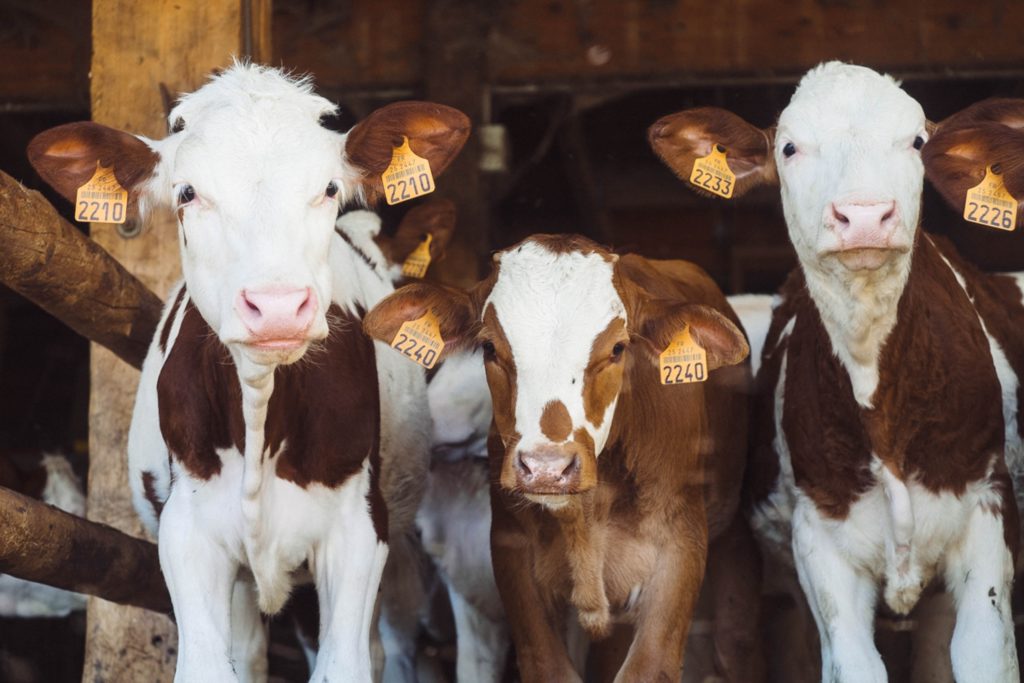4 Mins Read
The Netherlands’ Upfield has disclosed its corporate methane footprint. It marks the first large food company in the world to do so. It claims to have released the data in a bid to push methane transparency into the food industry, alongside carbon declarations. To date, only the energy industry has been called on to offer methane disclosure, despite the food and agriculture industry creating more emissions.
Upfield partnered with Antithesis Group to create a platform for methane emissions calculations and transparency. The move comes after a reduction in such emissions has been shown to make a meaningful impact on global warming.

Upfield leading by example
Carbon honesty is becoming relatively normal, particularly with grocery receipts and food packaging starting to print footprint data in plain sight. Methane has remained ignored by the food and agricultural sector, however. Upfield aims to change this by releasing its own figures and using them as a call to action for others to follow.
“Cutting the methane impact of our diet is one of the easiest things we can do to tackle climate change in the short-term,” TimCroker, principal consultant at Antithesis said in a statement. “Study after study has shown that eating a mostly plant-based diet is better for our health and better for the planet. Our agricultural and supply-chain specialists, supported by our Net Zero teams, welcome the challenge of working with companies like Upfield that want to lead the way.”
In its report, Upfield reveals that 7.5 percent of its total greenhouse gas footprint comes from methane. This equates to 0.237 million metric tonnes per year. Dairy products accounted for more than half (63 percent) of the methane emissions. Tropical and liquid oils came second with 14 and 13 percent respectively. Upfield states that this revelation has led to the company looking to ‘eliminate’ dairy from its global supply chains. At present, dairy accounts for 1 percent of Upfield’s ingredients, by weight, but generates 8 percent of its total greenhouse gas emissions. This is impossible to balance.

The problem with methane
Methane emissions have come under scrutiny, with the Un Environment Programme advising a reduction of 45 percent by 2030, to prevent global warming increasing by more than 1.5°C. Cited as having more warming potential than CO2, methane is an ill-understood but heavy contributor to the climate crisis. A minimum of 25 percent of global warming is attributed to methane connected to human actions.
Consumers are blinkered by carbon concerns, leaving manufacturers to take action on their behalf. Upfield seeks to lead the charge, highlighting that the food and agriculture sector is just as responsible as oil and gas for methane elimination. Though methane has a shorter half-life than carbon dioxide, it makes a more serious impact in the short term. Reducing it will produce measurable results now.
Plant-based versus conventional food producers
Upfield has been honest that it produces less methane than regular meat and dairy manufacturers, thus acknowledging that other companies might not be keen to reveal their figures. However, it states that unified transparency and a global shift away from animal products are essential to beat the climate crisis. It has similarly voiced opinions about the importance of moving away from fossil fuel reliance to renewable energy sources for industrial operations such as itself.
“Important discussions started on the urgency with which we need to address methane as a contributor to the climate crisis at COP26 around fossil fuels, while methane in the food and agriculture sector was hardly mentioned. We are disclosing our methane footprint to set a precedent for methane transparency in the food sector,” Sally Smith, Upfield’s global director of sustainability and ESG said in a statement. “We want to help establish a methodology for measuring and disclosing methane, and to encourage action to rapidly reduce this harmful greenhouse gas. If you think there is a better way to disclose methane, we would like to hear it.”
Upfield already disclosed its total greenhouse gas emissions data publicly, alongside commitments to reduced them by 25 percent, by 2030. The company aims to be net-zero by 2050 and 95 percent plastic-free by 2030. It is in the process of adding carbon labelling to 500 million product packets, by the end of 2025.

Methane on the mind
Upfield is not alone in looking to tackle the methane crisis. Recent figures from the National Oceanic and Atmospheric Administration revealed that globally, emissions rose to their highest levels yet, in 2021. Livestock farming is heralded as being a major contributor, accounting for around 25 percent of all methane production.
Mango Materials is taking a proactive approach to methane handling, by developing a system to turn emissions into a biodegradable biopolymer. Methane is collected as a waste product from biogas creation and turned into a material that can replace conventional plastic packaging and polyester in clothing. In February last year, the female-founded and led biotech was looking to start scaling up production.
Lead photo by Upfield.




